Venezuela's socialist tragedy is predictable - but no less horrifying for that
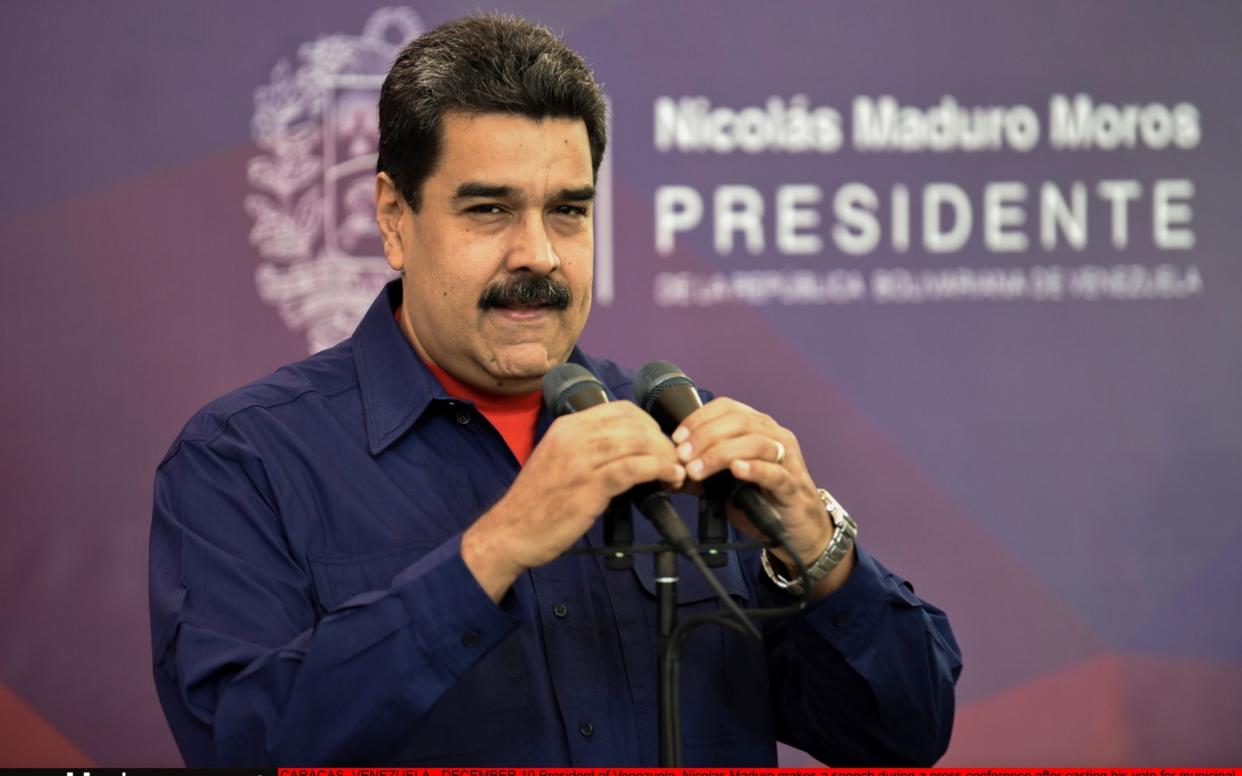
To watch Venezuela’s downfall is to be horrified. Venezuelans have been reduced to zombies. They have to queue for hours just to obtain a bag of rice or a few eggs. Eight out of 10 medicines are not available. There is no toilet roll, and toothpaste and contraceptives are extremely hard to obtain. The minimum wage – including luncheon vouchers – is the equivalent of £3.70 a month.
In the face of all this, Nicolás Maduro, the Venezuelan president, has now taken the obvious next step in his socialist dictator’s playbook and banned the main opposition parties from contesting presidential elections next year. The country’s atrocious economic situation has made him so detested that he couldn’t possibly win free and fair elections. That is a tragedy, but as with many tragedies, it is in large part self-inflicted.
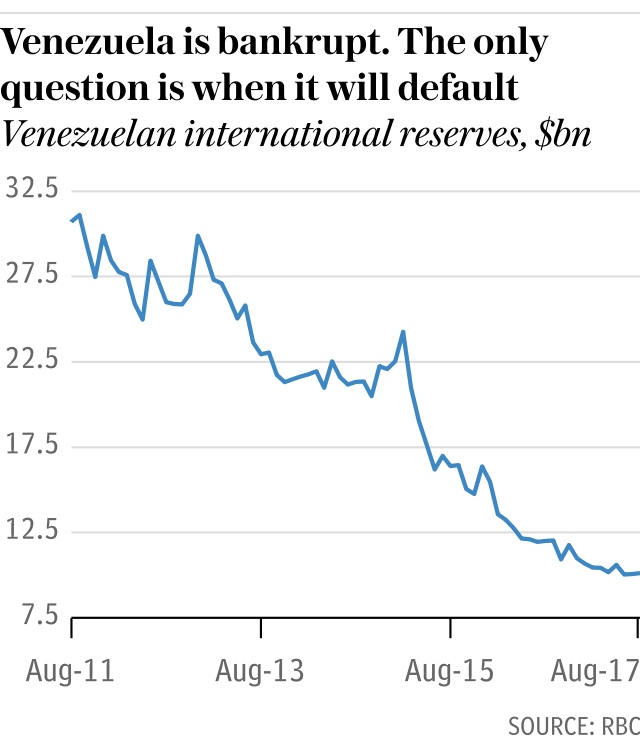
Maduro’s mentor was Hugo Chávez, the charismatic if brash former army colonel who was elected president in 1998, just six years after leading a failed military coup. Chávez was the archetypal Left-wing demagogue, and what followed has been a terrible step-by-step descent into socialist dictatorship. As with the emerging despotism in Animal Farm, the results are all too predictable, but they are no less appalling for all that.
Highly popular for most of his rule, Chávez – the idol of many socialists worldwide, including our own Jeremy Corbyn, John McDonnell, Diane Abbott, and Ken Livingstone – nationalised thousands of companies in the oil, agriculture, and banking sectors. Their productivity duly plummeted. Oil production by PDVSA, the state-owned oil giant, has collapsed to 1.9 million barrels per day, down from 3.5 million in 1998.
The petrodollars that were produced were spent on hugely expensive but very popular subsidies and direct payments to Venezuela’s large number of poor. While doing all of this, Chávez quintupled the country’s international debt to at least £70 billion. Servicing this is now so onerous – around £7.5 billion a year – that the regime is on the verge of a catastrophic default.
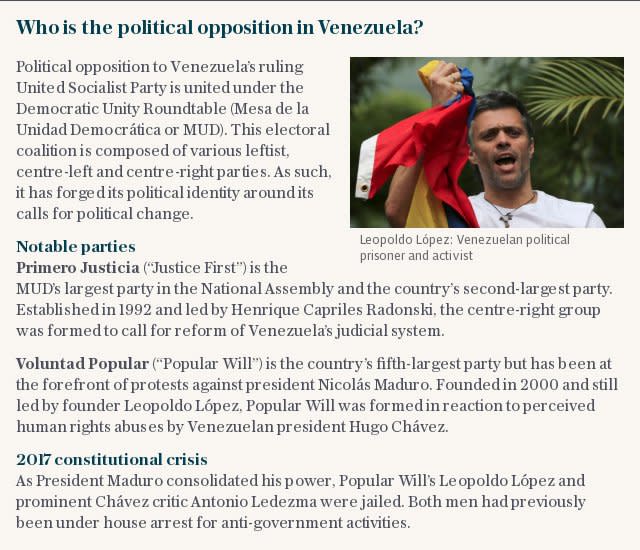
The Venezuela that Chávez created was utterly corrupt and incapable of weathering the storm of plunging oil prices. Fortunately for Chávez, he wasn’t around to reap the rewards. For things took a turn for the surreal in 2012 he ran for a fourth presidential term despite clearly being on his deathbed. He died just months after winning and Maduro succeeded him. Maduro himself faced a new election in 2013, one in which he won a contested victory by just 1.49 per cent. Since then the collapse of Venezuela, both democratically and economically, has been rapid.
The country is now wedded to to a corrupt economic model designed to enrich the socialist oligarchy at the expense of 32 million citizens. It is believed that around 50,000 of the president’s cronies benefit from the fixed exchange rate regime. At the official rate, there are ten bolívars to the dollar but, on the black market, a US dollar fetches 93,000 bolívars. Well-connected Venezuelans hand over ten bolívars, obtain a dollar, and then exchange it in to almost one hundred thousand bolívars on the black market. They become bolívar billionaires.
It is a grotesque distortion at the root of the country’s dire economic problems but the president will not dismantle it; the army generals who prop the regime up benefit from it personally.

Venezuela suffers from the rest of the usual socialist toolkit as well; Exchange and capital controls are joined by price controls. The nation is now in the miserable grip of hyperinflation – inflation is expected to surpass 2,400 per cent next year. Its economic recession dwarfs even that of the Great Depression of the Thirties – GDP dropped by 38 per cent between 2014 and 2017 and is expected to decline by a further six per cent next year. The country’s imports have nosedived by 93 per cent during the last five years.
This should be disastrous for the incumbent. In fact, while the economy has spiralled out of control Maduro has tightened his grip on power. His party lost control of the parliament and so he had parliament stripped of its powers by the supreme court. With the help of a pliant electoral commission, he has placed endless impossible hurdles in the way of a petition calling for him to be recalled.
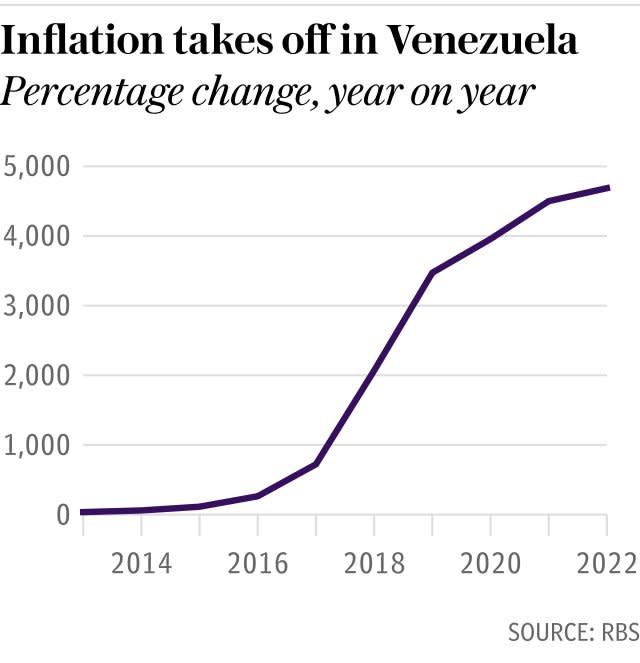
When all these failed and violent nationwide protests erupted, he created a “constituent assembly” – jam packed full of cronies through something hardly worthy of the name election – to draft a new constitution and permanently entrench the socialist “Bolivarian revolution”. And all this is without mentioning the multiple political prisoners he has locked up.
Maduro’s latest move is just the next disgraceful step on the well-trod path of socialist dictatorship. It is always the same: crashed economy; social unrest; one party state; repression of civil liberties. What can begin with the best intentions ends in a security state. Maduro no longer cares about world opinion. Like a South American Ceaușescu he is only concerned about clinging to power. All that drives him is avoiding Ceaușescu’s fate.
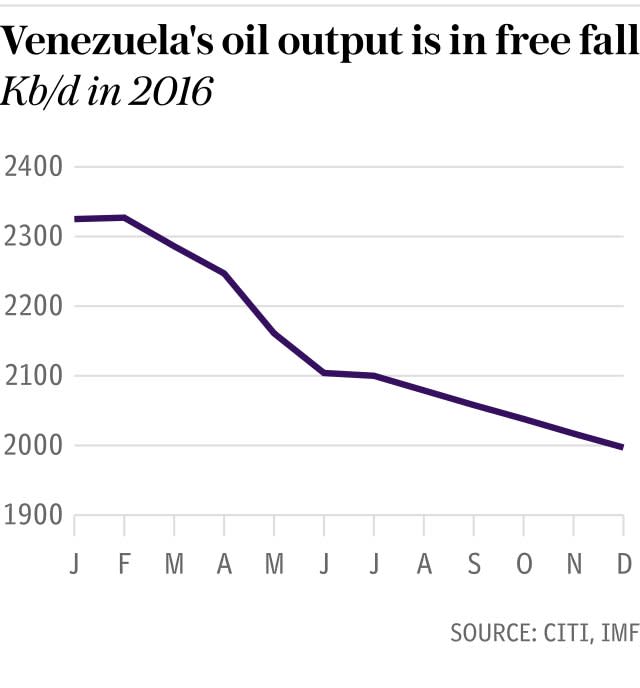

 Yahoo News
Yahoo News 
